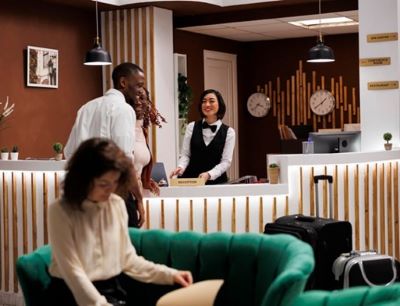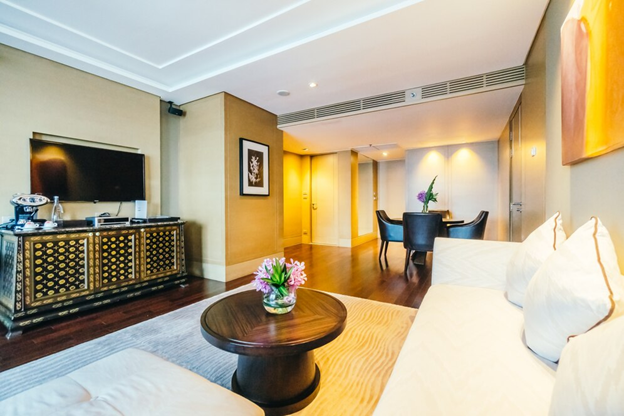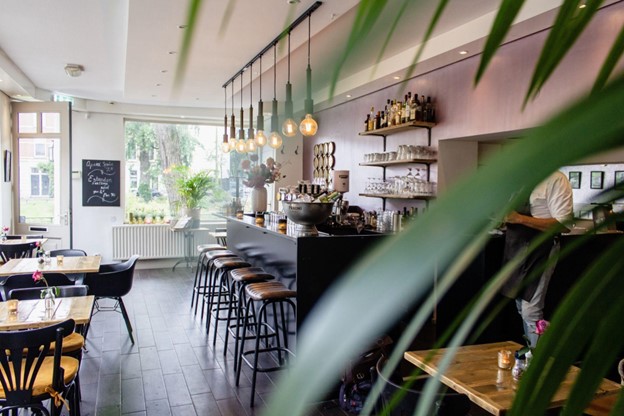Journal
Transformative Design and Renovation for Hotels and Restaurants

The fast pace of the hospitality industry is well-noted. Customer preferences evolve rapidly. New players swarm the market at warp speed. As such, hotels and restaurants must be constantly improving to avoid learning a quick and painful lesson from those who are. With this in mind, one of the best ways to stay ahead of the game is through contemporary facility renovations. The latest upgrades can improve the safety, functionality, and enjoyment of an establishment, creating a truly unforgettable hospitality experience. Keep reading as we explore the most transformative renovations that are redefining the hospitality industry.
Glass Staircase Railing
Many hospitality facilities are recognizing the various benefits of glass. It is a durable and low maintenance building material. It is fully recyclable at the end of its useful life. It is safe to touch, as it is not a conductor of heat and electricity.
Most importantly for hotels and restaurants, glass is visually stunning. No longer is it confined to a breathtaking chandelier. Glass staircase railings are making a major statement in modern hospitality buildings. They define space and promote safety/security without obstructing sight lines or restricting natural light flow. This puts glass railings ahead of other railing systems that lag behind in one or more of these areas.
Upgraded Technology
Society is more plugged-in than ever. People have to get their daily fix of technology. Being left “off the grid” can cause some serious anxiety in most people.
Therefore, any technological upgrades will be major wins for hotels and restaurants. Digital kiosks are a great idea. Allow visitors to check in, place an order, track progress, or simply browse while they wait in your facility. Make charging stations plentiful in all common areas. Don’t let a dead device be a reason visitors don’t return. Get a head start on creating an EV-charging infrastructure on your premises. Electric vehicles are the future, and the future will arrive whether you are ready for it or not.
Open Floor Plan
Open interiors are a major trend in interior design. They offer a multitude of benefits. Open spaces create an inviting ambience. They evoke a sense of spaciousness. There are even energy efficiency benefits. Natural light flows more freely through an open interior, reducing the need for electricity during the day.
In restaurants, open designs can create a sense of connectedness between customers and staff. They can even establish trust. This idea was actually pioneered by White Castle roughly a century ago. Founder Walt Anderson felt that by keeping the kitchen open and allowing customers to see everything that went on during the cooking process, the transparency would help people trust hamburgers as a safe food. The idea led to widespread adoption of the hamburger as a food as American as apple pie.
To help make an open interior work, there are several factors to keep in mind. Acoustic wall panels and/or ceiling clouds should be installed as part of a sustainable insulation infrastructure. This will keep noise from traveling throughout the space. The facility should also stock a healthy selection of demountable glass partitions for times when privacy and more defined space is necessary.
ADA Functionality
Our society is more inclusive than ever. Businesses and commercial spaces are going the extra mile to welcome people from all walks of life. It is no longer adequate to be merely ADA “compliant.” The best hospitality facilities will allow their ADA clientele to thrive. The highest level of automation offers unprecedented access and use of facility features. Handrail systems are no longer confined to restrooms. They should be strategically placed throughout the building for the mobility-impaired to use. Ramps and elevators provide ease of access. Clearly defined exit points assist ADA visitors in the event of an emergency.
Boosted Curb Appeal
Score a win before providing service through stunning curb appeal. Curb appeal establishes the first impression that will help visitors decide if they want to enter or not. There are numerous ways to upgrade curb appeal. New windows and cladding can make a major impact. Painting and basic landscaping are great bang-for-your-buck options. Fresh asphalt and clearly marked parking spaces are also an overlooked aspect of creating a stunning hospitality exterior.
Functional Exterior Spaces
More and more people are working remotely. This can cause them to be trapped inside five days a week with no reason to leave the house. This can be problematic, as a calming connectivity with nature is vital for physical and mental health. Modern hospitality facilities must be aware of this. Restaurants need robust patio dining areas. Use pergolas for shade, with climbing plants offering a much needed shot of greenery. Rooftop decks are a trend in urban high rises. They offer transitional interior/exterior spaces when adjacent lawn area is at a premium. Some buildings are even deploying living roofs and other green roofing solutions to make the most efficient use of space possible.
Statement Renovations for an Elevated Hospitality Experience
The hospitality industry is famously cutthroat. New ideas, technologies, and competitors are constantly arriving to squeeze every last drop out of profit margins. Therefore, it is critical to stay ahead of the game via contemporary building renovations. By considering any of the impactful ideas listed above and other resources at Amy Youngblood Interiors, you can put your business in a prime position to offer an elevated hospitality experience.


